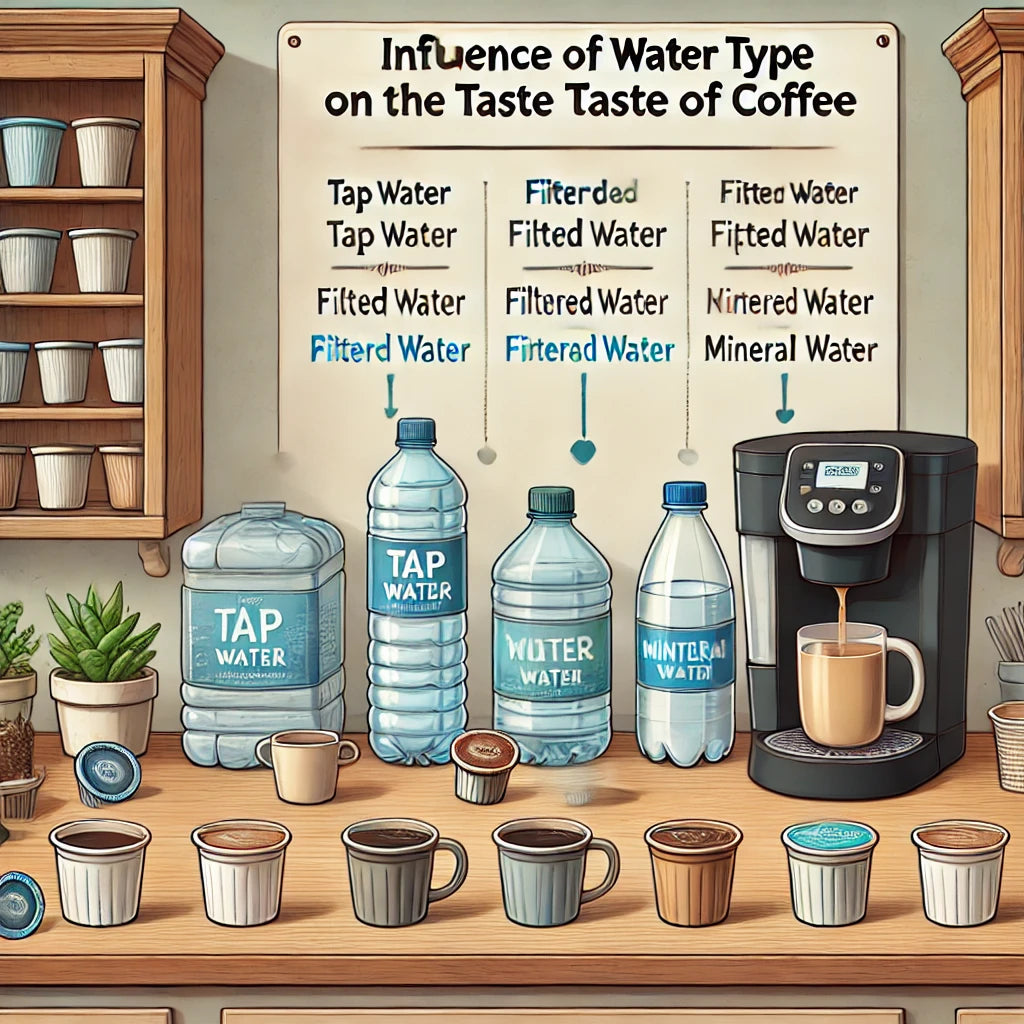The quality of water used in brewing coffee plays a crucial role in determining the taste and overall experience of your cup. When using reusable K-Cups, the type of water you choose can significantly impact the flavor profile of your coffee. This article explores the influence of different water types on the taste of coffee brewed with reusable K-Cups, providing insights to help you achieve the perfect brew.
Water is the primary solvent in coffee brewing, responsible for extracting the flavors and aromas from the coffee grounds. The mineral content, pH level, and overall purity of the water can all affect the extraction process, leading to variations in taste. By understanding how different types of water interact with coffee, you can enhance the flavor and quality of your brew, ensuring a delightful coffee experience every time.
In the following sections, we will discuss various types of water commonly used in coffee brewing, their characteristics, and how they impact the taste of coffee made with reusable K-Cups. This comprehensive analysis will help you make informed decisions about the best water to use for your coffee.
Tap water
Tap water is the most accessible and commonly used type of water for brewing coffee. Here’s how it affects the taste of coffee with reusable K-Cups:
- Mineral content: Tap water contains various minerals such as calcium and magnesium, which can enhance the flavor of coffee by contributing to a balanced extraction. However, excessive mineral content can lead to over-extraction, resulting in a bitter taste.
- Chlorine and impurities: Many municipal water supplies add chlorine to disinfect the water, which can impart an undesirable taste to the coffee. Additionally, impurities and contaminants present in tap water can affect the flavor.
- pH level: Tap water’s pH level can vary, but it generally falls within a neutral range. Slightly acidic or alkaline water can influence the extraction process and alter the coffee’s taste.
Filtered water
Filtered water is a popular choice for coffee brewing, as it removes many impurities while retaining essential minerals. Here’s how it impacts the taste:
- Improved purity: Filtration systems can remove chlorine, heavy metals, and other impurities from tap water, resulting in a cleaner taste and improved coffee flavor.
- Balanced mineral content: High-quality filters retain beneficial minerals that enhance the extraction process, providing a balanced and flavorful cup of coffee.
- Consistency: Using filtered water ensures consistent quality and taste, as it removes variations in the tap water supply.
Bottled spring water
Bottled spring water is another option for brewing coffee, known for its natural mineral content. Here’s its influence on coffee taste:
- Natural minerals: Spring water naturally contains minerals that can enhance the coffee’s flavor by contributing to a well-rounded extraction.
- Purity: Bottled spring water is typically free from contaminants and chlorine, providing a clean taste that allows the coffee’s flavors to shine.
- Cost and environmental impact: While spring water can improve coffee flavor, it is more expensive and less environmentally friendly compared to other options.
Distilled water
Distilled water is purified through a process of boiling and condensation, removing almost all minerals and impurities. Here’s how it affects coffee taste:
- Lack of minerals: The absence of minerals in distilled water can lead to under-extraction, resulting in a flat and uninspiring cup of coffee.
- Purity: Although distilled water is very pure, the lack of mineral content means it does not enhance the coffee’s flavor, making it a less ideal choice for brewing.
Reverse osmosis (RO) water
Reverse osmosis water is purified through a filtration process that removes most impurities and minerals. Here’s its impact on coffee taste:
- High purity: RO water is very pure, removing contaminants and providing a clean taste.
- Adjustable mineral content: Some RO systems allow you to reintroduce minerals after filtration, providing control over the water’s mineral content and enhancing the coffee’s flavor.
- Consistent quality: RO water offers consistent quality, ensuring a reliable brewing experience.
Tips for optimizing water quality for coffee with reusable K-Cups
To achieve the best coffee flavor using reusable K-Cups, consider these tips for optimizing your water quality:
- Use a high-quality filter: Invest in a good water filtration system to remove impurities and retain beneficial minerals.
- Test your water: Use water testing kits to check the mineral content and pH level of your water, ensuring it falls within the optimal range for coffee brewing.
- Avoid distilled water: Refrain from using distilled water, as the lack of minerals can result in under-extraction and poor flavor.
- Experiment with different water types: Try brewing coffee with different types of water to find the one that best suits your taste preferences.
In conclusion, the type of water you use in brewing coffee with reusable K-Cups significantly influences the taste and quality of your brew. By understanding the characteristics of various water types and optimizing your water quality, you can enhance the flavor and enjoyment of your coffee. Whether you choose filtered water, bottled spring water, or reverse osmosis water with reintroduced minerals, the right water can make all the difference in your coffee experience. Happy brewing!
